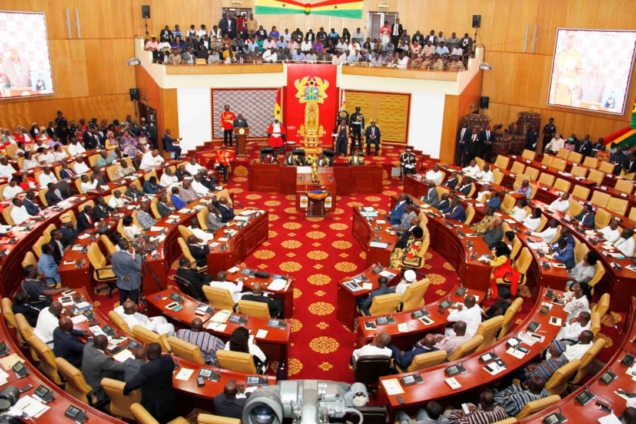The Chairman of the Food and Beverages Association, John Awuni has described the government's decision to ban the importation of some staple foods as insensitive.
According to him, before the government decides to implement such policies, it should have done due diligence by ensuring that the country produces these food items it is seeking to place a ban on.
In an interview with JoyNews, he said “I must say it very unacceptable and maybe it is some wickedness you want to unleash on the people because it is not as if the country is ready for this.
“If the country is ready for this, we all will clap hands and be happy about that. As a technical person, I want to see that this country has built blocks towards this, but you don’t wake up one early morning and exercise this level of insensitivity on the people.”
- Read also: Gov’t pushing for law to ban import of ‘yemuadie’, rice, others without committee approval
His comments come on the back of the government's push to restrict the importation of what it calls strategic products, including rice, fruit juices, tripe, fish, cement, and some other 17 items.
In this regard, the Chairman said before the Executive decides to push such policies, they must ensure that the country has local products that can last for a minimum of three years to prevent food shortages.
“If I take rice for instance, before any government can come up with a policy to implement, government should have had its local stock in a buffer in their warehouses which can cover about three years. That is, we have produced rice locally and are in stock which can cover a minimum of three years,” he stressed.

An Associate Professor at the University of Ghana Business School, Lord Mensah says he doubts that there would be a successful implementation of the plan.
“So from where I sit, the call (to re-evaluate) the timing and whether it should be prioritised or not is in order because if you take things like fruit juice, you take things like animal and vegetable oil, I mean if you look at our livestock market do we have enough that can feed the demand in the country? So, I think it is too early or it is too quick to drop such an L.I. to place restrictions," he clarified.
He added that he was not sure if the government wanted to have the policy in place and work hard to ensure that the country is self-sufficient before the policy is fully implemented. However, he said “I still don’t trust the delivery of this."
Latest Stories
-
Local Government Minister proposes sanitation levy to address Ghana’s waste management crisis
6 hours -
Central University Vice Chancellor calls for Fee Voucher System to support private universities
6 hours -
Heritage Month Cooking Competition showcases Ghana’s culinary richness
6 hours -
His finest hour yet: The Bawumia concession and lessons in leadership
8 hours -
EC reschedules nomination for Nkoranza North and South District Level Elections
9 hours -
Energy Minister must recover stolen ECG containers or be held accountable – Ntim Fordjour
9 hours -
CLOGSAG suspends strike over Births and Deaths Registry appointment
9 hours -
Ing. Ludwig Annang Hesse is new president of GhIE
10 hours -
One artiste can’t take Ghana to the top, we must collaborate – Edem
10 hours -
Presidency hasn’t ordered NIB to investigate Akufo-Addo’s travels – Felix Kwakye Ofosu
10 hours -
Edem explains how 2023 motor accident made him lose gigs
10 hours -
Smoke detectors and modern technology: A game-changer in Ghana’s fight against market and home fires?
10 hours -
Provisional results for 2025 WASSCE First Series released
10 hours -
M&O Law Consult’s Emmanuel Mate-Kole awarded for ‘Excellence in Strategic Law Firm Leadership Management’
10 hours -
50 female entrepreneurs graduate from Access Bank Ghana’s Womenpreneur Pitch-A-Ton
10 hours

